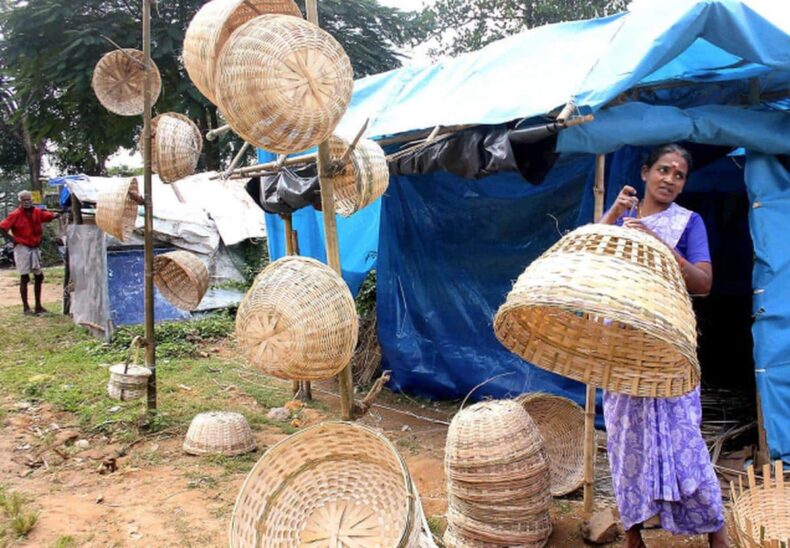Prime Minister Narendra Modi recently announced the “PM Vishwakarma Kaushal Samman Yojana” (PM-VIKAS) during the Budget 2024-24. This scheme optimistically looks forward to transforming the Indian artisans of today into the entrepreneurs of tomorrow.
PM-VIKAS leading to a rise of entrepreneurship in India
During the webinar on the PM-VIKAS scheme, PM Narendra Modi highlighted the significance of the stability in the business model of artisans to persuade them to become successful entrepreneurs. The PM-VIKAS scheme will concentrate on introducing Indian handicrafts into the Micro, Small, and Medium scale Enterprise (MSME) value chain to assist Indian artisans and craftsmen to aid them to compete with global markets. Additionally, PM Modi has urged all the stakeholders to include small artisans in their value chains.

According to the Prime Minister, it is essential to help artisans living in remote areas become a strong part of the value chain. Lord Vishwakarma is considered the ultimate creator, and those who create something with their own hands and tools have a rich tradition in Indian society. PM-VIKAS aims to develop traditional artisans and craftsmen by promoting and preserving their rich folk traditions.
The PM-VIKAS scheme has a clear goal of hand-holding artisans and people associated with small businesses and the development of traditional craftsmen. Prime Minister Narendra Modi pointed up the role of artisans in village life, which can bring modifications to the rural economy, and spoke about Gandhi’s concept of Gram Swaraj. He also emphasized how his government’s many schemes, including Mudra Yojna, have been supporting the artisans and others.
Inspirations for Indian Artisans
There are many examples of artisans who have become successful entrepreneurs, with their passion for traditional crafts transforming into thriving businesses. Ritu Kedia is one such example who started her business, Silk Rute, in 2005. She comes from a family of traditional weavers and specializes in handwoven silk sarees. Her business has grown significantly, and she now exports to countries like the USA, UK, and Australia.
Nila House is another brand that showcases the work of artisans from rural India. The brand was founded by Nila Gupta, who left her job in the corporate world to pursue her passion for Indian crafts. Nila House has collaborated with over 50 artisans across the country and offers a wide range of products, including home decor, apparel, and accessories.

These examples show that the PM-VIKAS scheme has the potential to transform many more artisans into successful business owners. By incorporating Indian handicrafts into the MSME value chain, the scheme can help preserve traditional folk art while also boosting the country’s economy. The Prime Minister’s call to make small artisans part of the value chain is crucial in achieving this goal. With the right support and opportunities, India’s artisans can contribute even more to the country’s growth story.

PM-VIKAS scheme is a significant step towards remaking India’s artisans into entrepreneurs. The scheme’s focus on incorporating Indian handicrafts into the MSME value chain can help preserve traditional folk art while also boosting the country’s economy. With the right support and opportunities, India’s artisans can contribute even more to the country’s growth story.
To make the Indian-ness reach every nook and corner of the world, the steps taken by the government are taking place in the most meaningful and right direction. Acknowledging the talents–breathing at the grassroots level-at a global stage is a highly welcoming initiative and the Indians second the step assiduously.













